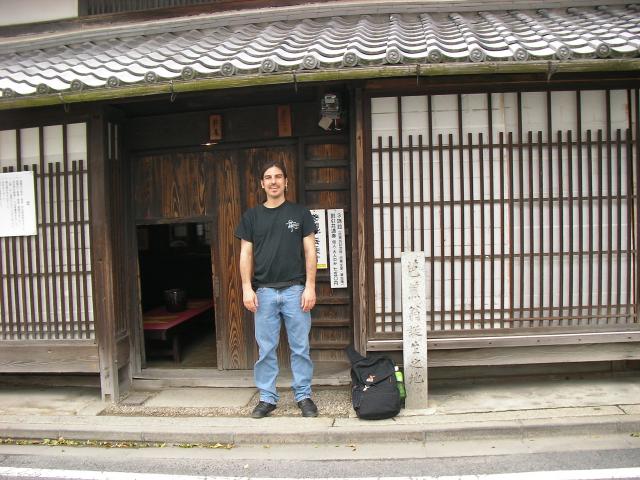Iga Ueno: Basho's birthplace (oh, and ninjas)

in the garden of
Basho's ancestral home -
a buttefly
Today, out to Iga Ueno. Kind of out in the sticks, you have to ride the Kansai/Yamatoji line way out past Nara to the Yamatoji line's end at Kamo, the pick up a tiny backcountry train to Iga Ueno. Then I switched to a Kintetsu train to go downtown.
To paraphrase Lou Gosset Jr.'s drill sergeant from An Officer and a Gentleman: "Only two things come out of Iga Ueno, boy: ninjas and haiku masters. And I don't see no sword on your back."
This is the home town, the birthplace, of Basho. And it's also known for it's ninjas, apparently they were allies of Ieyasu Tokagawa. Guess which one the lady at the tourist office assumed I was here to see? But she seemed pleasantly surprised when I inquired after the Basho museum instead of the Ninja one.
The museum is not much to see if you can't read Japanese, but I could enjoy some paintings on the scrolls, and it's closest to the station.
But Basho's birthplace and childhood home, preserved or restored, is something to see. The lady who worked there was so nice; only a bit of English but tried to explain as much to me as possbile. Took my photo outside the place for me. Looking into the courtyard garden - bam! butterfly, so the above haiku.
She gave me an English map of the local Basho sites. At her suggestion I visited the nearby Shinto shrine to which he dedicated his first collection of poems. The shrine is not a spectacular sight, but interesting that a fellow so associated with Zen would make such a gesture.